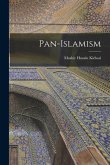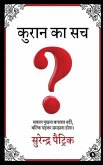Traditional Muslims follow tradition more than revelation. They confuse tradition with revelation. They follow traditional rather than universal Islam. A few follow political Islam or Islamism. Tradition does not possess the timelessness or the universality of revelation. Traditions were relevant in the past; revelation is relevant at present, too. Traditionists treat tradition as "revelation," they treat past practices by the predecessors as binding. They treat history as "revelation." Traditional ulama treat tradition as a "judge" of revelation. But treating tradition as a "judge" of revelation reverses the relationship between revelation and tradition. The treatment of tradition as "revelation" was assisted by the repression of reason. Refraining from using reason corrupted knowledge. The corruption of knowledge plunged the umma into a string of tribulations. The umma is experiencing a crisis after crisis. The corruption of the knowledge of revelation resulted from the politicization of exegesis. The politicization of interpretation corrupted the knowledge of revelation. The politicization of Islam resulted in a "reinterpretation" of the teaching of Islam to endorse the political agenda of hawkish rulers. Exegesis was corrupted by recourse to presuppositions that flout key teachings of revelation. These encompass the perceptions that the Book of Allah is in parts "unclear," "incomplete" and "incoherent." The presuppositions that the Book of Allah is "unclear" and "incomplete" provided the "justification" for turning from revelation to tradition. The mischaracterization of revelation as "contradictory" provided justification for recourse to the teaching of abrogation. The turn from revelation to tradition, the repression of reason and the treatment of tradition as "revelation" produced traditional Islam. Recourse to the teaching of abrogation produced political Islam. Traditional Islam requires perceiving revelation through the lens of tradition. But perceiving revelation "in the light of tradition" corrupts the knowledge of revelation. It gets worse. For recourse to the teaching of abrogation enabled the re-interpretation of Islam as a religion of war. The Book of Allah permits fighting in self-defense or against persecution. But is does not permit wars of aggression. Thus, the Islam of the hawkish ulama differs from the Islam of the Book of Allah. It is the Islam of jihad al-talab, which requires the propagation of Islam through compulsion as a religious obligation. It is the Islam of the clash between the dar al-Islam and the dar al-harb, the realm of peace vs the realm of war. It is the Islam of extremists. Present-day Islam is a result a millennium or more of misinterpretation. Islam was politicized to render it amenable to the political or empire-building agendas of hawkish rulers. Politicized ulama, under the tutelage of hawkish rulers, stepped up to the task and provided to the rulers what they wanted: an Islam stripped of its teachings on ethics, rationality and justice. Political Islam would permit what Allah prohibited and furnish a "religious" justification for the perpetration of war crimes. Political Islam would provide a justification for the unlawful enlargement of the realm through compulsion. The justification of waging wars of aggression required flouting key verses of the Book of Allah. These encompassed the teaching that the Book of Allah is clear, fully detailed and free of contradiction. In contradicting these verses, the ulama defied the Book of Allah and deified tradition. The books of traditions were brought in to "compensate" for the alleged deficiencies of the Book of Allah, specifically its alleged lack of clarity and detail. The alleged "contradictions" in the Book would be redressed by the teaching of abrogation, a further expression of problematic exegesis. In defying the Book of Allah, the ulama reduced their profession to the rank of propaganda. The reliability of enquiry was tainted.
Bitte wählen Sie Ihr Anliegen aus.
Rechnungen
Retourenschein anfordern
Bestellstatus
Storno




